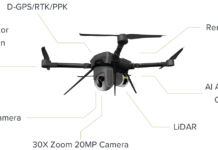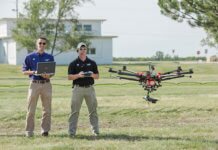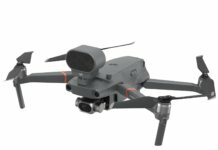Ballard Power Systems has developed a next-generation, high-performance fuel cell propulsion system to power unmanned aerial vehicles (UAVs). Ballard has also received a follow-on contract from Insitu, a Boeing subsidiary, for extended durability testing of the 1.3 kW fuel cell propulsion system to power test flights of its ScanEagle drone platform.
Ballard and Insitu have partnered over the past two years to integrate Ballard’s prior fuel cell propulsion system – a complete hydrogen power system for small unmanned fixed-wing and vertical takeoff and landing (VTOL) platforms – into the ScanEagle platform. Successful flight testing was announced in mid-2017.
According to Ballard, the new system delivers a number of important advances: increased power density, resulting from a new membrane electrode assembly (MEA) design; reduced cost, resulting from a combination of new MEA and one-step fuel cell stack sealing process; and extended lifetime. The increase in rated power – without any appreciable increase in size or weight – is a particularly significant development for UAV applications, notes Ballard.
According to the company, fuel cells offer a three-times increase in mission time over battery-powered drones.
The ScanEagle, 1.55 meters (5.1 feet) in length, has a wingspan of 3.11 meters (10.2 feet) and a maximum takeoff weight of 22 kilograms (48.5 lbs). The UAV can fly at a maximum speed of 41.2 meters per second (80 knots) and reach a ceiling of 5,944 meters (19,500 feet).












